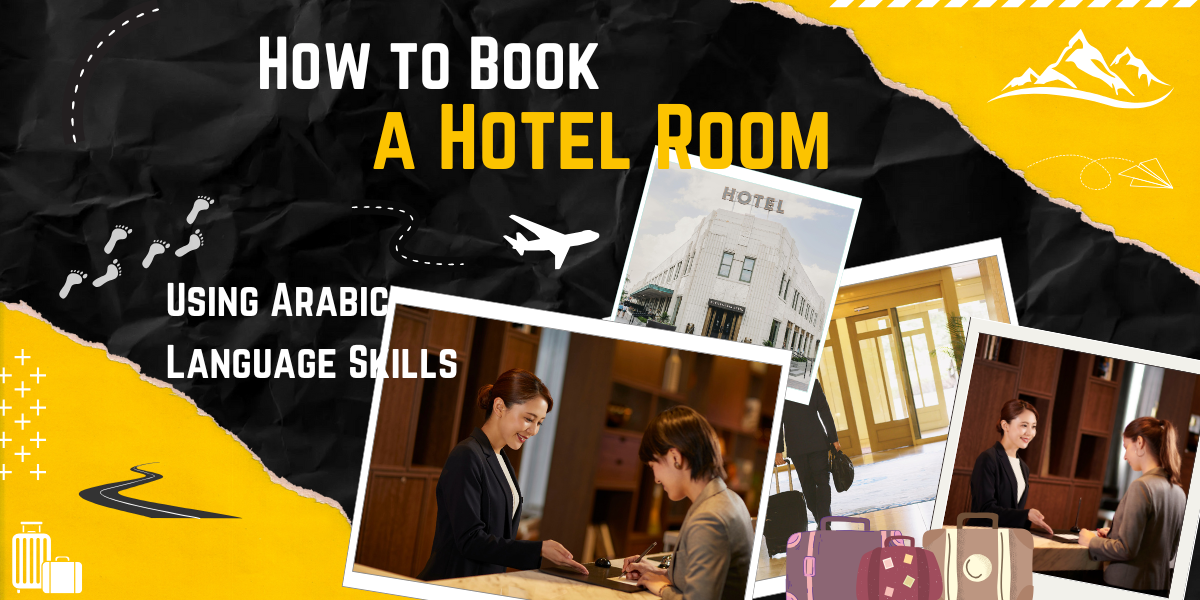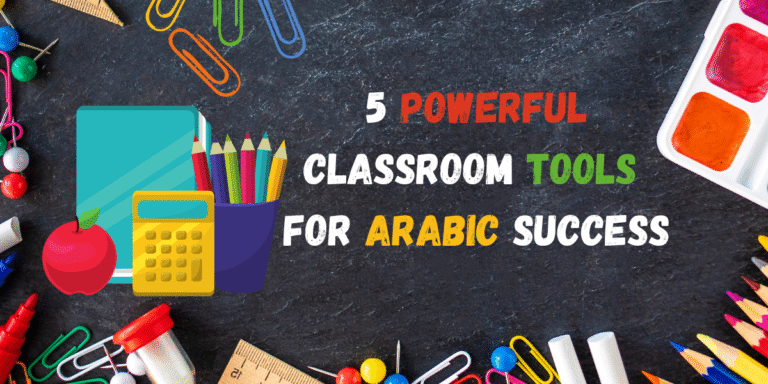How to Book a Hotel Room Using Arabic Language Skills 2025/26
Traveling to a new country is always exciting, but it also comes with challenges. One of the most important tasks when you arrive in a new place is finding a place to stay. Booking a hotel room might feel simple if you use English or your own native language, but what if you want to practice Arabic? For many Arabic learners, this is a great opportunity to turn an everyday task into a learning experience. Using Arabic when booking a hotel room can help you build confidence, learn practical vocabulary, and communicate more naturally with native speakers.
Arabic is spoken by more than 400 million people across 22 countries, and hotels in Arabic-speaking countries often welcome international guests. Staff members might speak English or French, but speaking with them in Arabic shows respect for their language and culture. It also allows you to connect more personally with the people you meet. Imagine being able to check in, ask for services, or request information in Arabic. You will not only improve your language skills but also enjoy a richer travel experience.
Many learners hesitate to use Arabic in real situations. They worry about making mistakes or not being understood. This is normal, but it should not stop you from trying. Booking a hotel room is the perfect practice scenario because the conversation is structured. You usually ask for a room, give your dates, and confirm the price. This makes it easier to prepare and learn the key phrases in advance.
This article will guide you step by step through the process of booking a hotel room in Arabic. We will look at useful words and phrases, how to ask for what you need, and how to respond to questions from hotel staff. You will also learn how to handle common situations, like asking about breakfast, internet access, or check-out times.
The goal is to give you practical tools, not just theory. Every section will include examples you can use immediately in real life. Whether you are traveling for work, study, or vacation, you will feel more confident when you step up to the reception desk and start speaking.
If you are learning Arabic on your own, this article will also show you how to practice these phrases before your trip. You can rehearse with a partner, record yourself speaking, or even simulate a hotel conversation at home. Practice is key to remembering vocabulary and speaking more fluently when you need it.
By the end of this guide, you will have a clear understanding of how to book a hotel room using Arabic. You will know what to say, how to listen for key words, and how to respond politely. More importantly, you will feel encouraged to use your Arabic skills in real travel situations and enjoy the benefits that come with speaking another language.
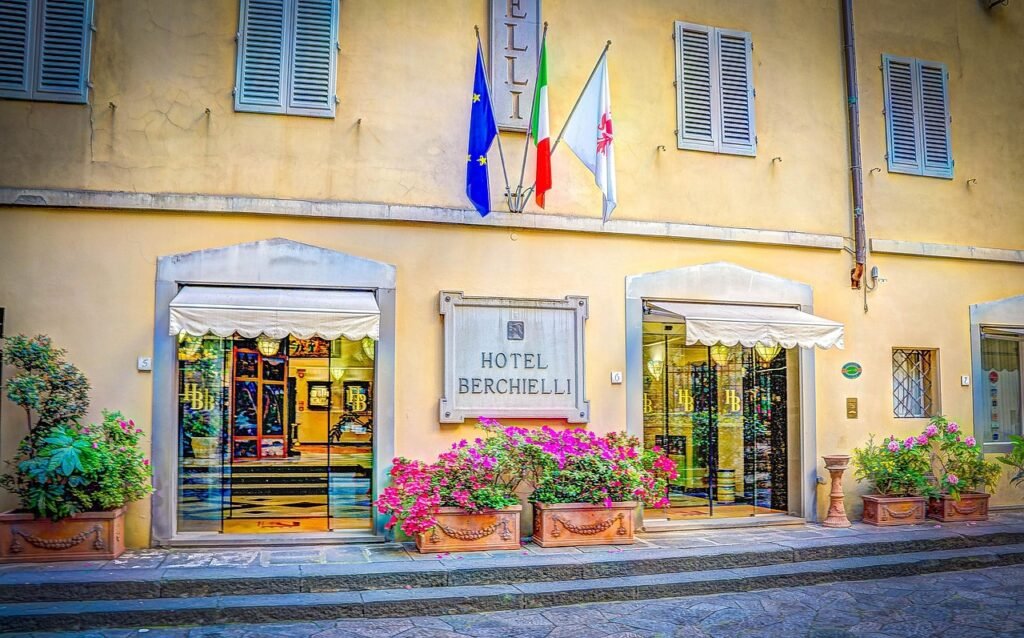
Part 1: Key Vocabulary and Phrases for Booking a Hotel Room in Arabic
When you book a hotel room in Arabic, you need simple, clear words. You do not need complicated grammar. Focus on phrases you will actually say. Learning them in advance helps you speak faster and with less stress.
Start with basic words you will hear or use:
- Hotel – فندق (funduq)
- Room – غرفة (ghurfa)
- Reservation – حجز (hajz)
- Reception – الاستقبال (al-istiqlāl)
- Key – مفتاح (miftāh)
- Price – سعر (si‘r)
- Night – ليلة (layla)
- Breakfast – فطور (futūr)
- Checkout – تسجيل المغادرة (tasjīl al-mughādara)
Once you know these words, build simple sentences. Here are phrases you can use at reception:
- I would like to book a room.
أود حجز غرفة (awaddu hajz ghurfa) - Do you have available rooms?
هل لديكم غرف متاحة؟ (hal ladaykum ghuraf mutāha?) - How much is the price per night?
كم سعر الليلة؟ (kam si‘r al-layla?) - I want a single room.
أريد غرفة مفردة (urīd ghurfa mufrada) - I want a double room.
أريد غرفة مزدوجة (urīd ghurfa muzawaja) - I will stay for three nights.
سأبقى ثلاث ليالٍ (sa’abqā thalāth layālin) - Is breakfast included?
هل يشمل الفطور؟ (hal yashmal al-futūr?) - What time is checkout?
متى تسجيل المغادرة؟ (matā tasjīl al-mughādara?) - Thank you.
شكراً (shukran)
Learning these sentences gives you a strong base. Repeat them until you can say them without thinking. Use them out loud, not just in your head. The more you practice, the easier it becomes to speak in a real hotel.
You might also hear questions from the hotel staff. Here are common ones:
- How many nights will you stay?
كم ليلة ستبقى؟ (kam layla satabqā?) - Do you want a room with breakfast?
هل تريد غرفة مع الفطور؟ (hal turīd ghurfa ma‘a al-futūr?) - Do you want to pay now or later?
هل تدفع الآن أم لاحقاً؟ (hal tadfa‘ al-ān am lāhiqan?)
When you hear these questions, focus on key words like nights, price, breakfast, and pay. Even if you do not understand every word, you can guess the meaning from context.
Practice answering with short, clear sentences. For example:
- Three nights.
ثلاث ليالٍ (thalāth layālin) - Yes, with breakfast.
نعم، مع الفطور (na‘am, ma‘a al-futūr) - I will pay now.
سأدفع الآن (sa’adfa‘ al-ān)
This way, you keep the conversation simple and avoid confusion.
If you are shy or worried about pronunciation, write the phrases down on your phone and read them when you speak. Hotel staff will appreciate your effort. Most will be patient and help you if you get stuck.
This first step is about learning the building blocks. Once you can say these words and phrases, you can move on to longer conversations like asking for special requests, directions, or extra services.
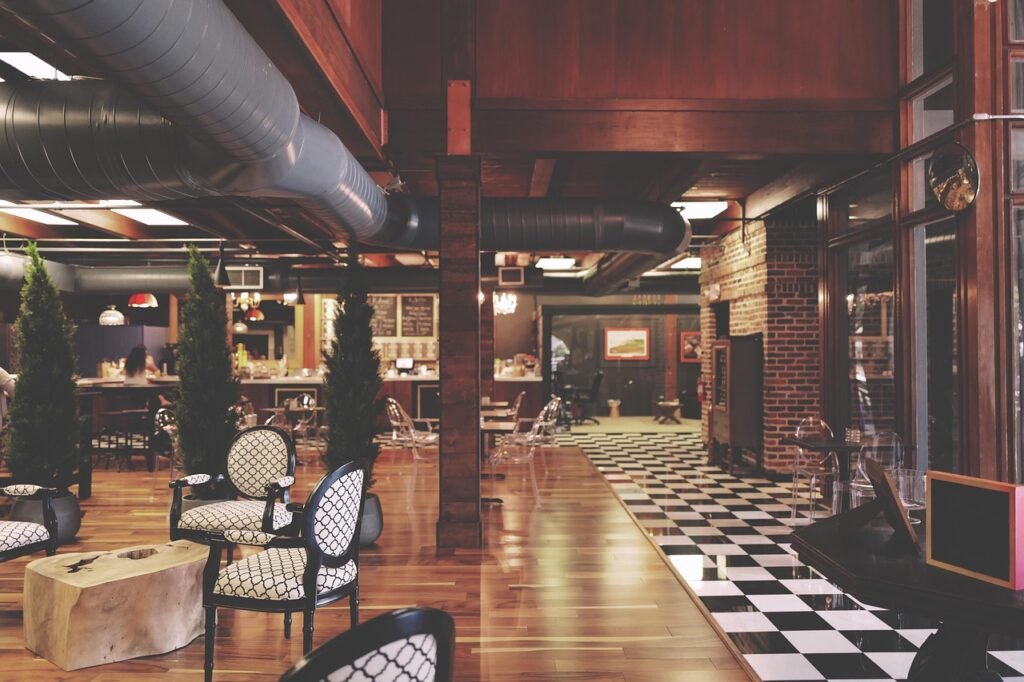
Part 2: Handling Common Hotel Situations in Arabic
Booking the room is only the first step. Once you check in, you will likely need to speak to the staff again. Knowing how to handle these situations in Arabic makes your stay easier and lets you practice more.
Asking for Wi-Fi
Most travelers need internet. Here is how to ask:
- Do you have Wi-Fi?
هل لديكم واي فاي؟ (hal ladaykum wāy fāy?) - What is the password?
ما هي كلمة المرور؟ (mā hiya kalimat al-murūr?)
If they answer quickly and you do not catch it, politely ask them to repeat:
- Can you repeat, please?
أعد من فضلك (a‘id min fadlik)
Requesting Extra Items
Sometimes you need more towels, pillows, or water. Learn these words:
- Towel – منشفة (minshafa)
- Pillow – وسادة (wisāda)
- Blanket – بطانية (baṭṭāniyya)
- Bottle of water – زجاجة ماء (zujājat mā’)
Example sentences:
- I need an extra towel.
أحتاج منشفة إضافية (aḥtāj minshafa iḍāfiyya) - Can you bring me a blanket?
هل يمكنك إحضار بطانية؟ (hal yumkinuk iḥḍār baṭṭāniyya?)
This kind of practice helps you get used to polite requests. Most hotels respond quickly when you speak clearly.
Asking About Services
You may want to know if the hotel offers laundry, room service, or a gym.
- Do you have room service?
هل لديكم خدمة الغرف؟ (hal ladaykum khidmat al-ghuraf?) - Do you have laundry service?
هل لديكم خدمة الغسيل؟ (hal ladaykum khidmat al-ghasīl?) - Is there a gym?
هل يوجد نادٍ رياضي؟ (hal yūjad nādin riyāḍī?)
If they say yes, you can follow up by asking about location or hours:
- Where is it?
أين هو؟ (ayna huwa?) - When does it open?
متى يفتح؟ (matā yaftaḥ?)
Changing Your Room
Sometimes the room is noisy or not what you expected. You can politely ask to change:
- I want to change my room.
أريد تغيير غرفتي (urīd taghyīr ghurfatī) - This room is noisy.
هذه الغرفة مزعجة (hādhihi al-ghurfa muz‘ija) - Do you have a quieter room?
هل لديكم غرفة أكثر هدوءاً؟ (hal ladaykum ghurfa akthar hudū’an?)
Being polite is important. Smile and use “please” – من فضلك (min fadlik). Staff are more willing to help when you stay calm.
Asking for Directions
Hotels are good places to ask for directions to local places.
- Where is the nearest restaurant?
أين أقرب مطعم؟ (ayna aqrab maṭ‘am?) - How do I get to the airport?
كيف أصل إلى المطار؟ (kayfa aṣil ilā al-maṭār?) - Can you call a taxi for me?
هل يمكنك طلب سيارة أجرة؟ (hal yumkinuk ṭalab sayyārat ujra?)
This lets you practice travel vocabulary and learn how locals give directions.
Dealing with Problems
Sometimes mistakes happen. Maybe your reservation is lost or the price is wrong. Stay calm and explain clearly.
- I booked a room yesterday.
حجزت غرفة أمس (ḥajaztu ghurfa ams) - This is not my reservation.
هذا ليس حجزي (hādhā lays hajzī) - Can you check again?
هل يمكنك التأكد مرة أخرى؟ (hal yumkinuk al-ta’akkud marra ukhrā?)
If the price is different from what you expected:
- The price is higher than what we agreed.
السعر أعلى مما اتفقنا عليه (al-si‘r a‘lā mimmā ittafaqnā ‘alayh)
Speaking slowly and politely helps the staff understand you and find a solution faster.
Practicing Before You Travel
Before your trip, practice these situations out loud. Role-play with a friend or record yourself. Use the same tone and speed you would use at the hotel. This makes you sound more natural and builds your confidence.
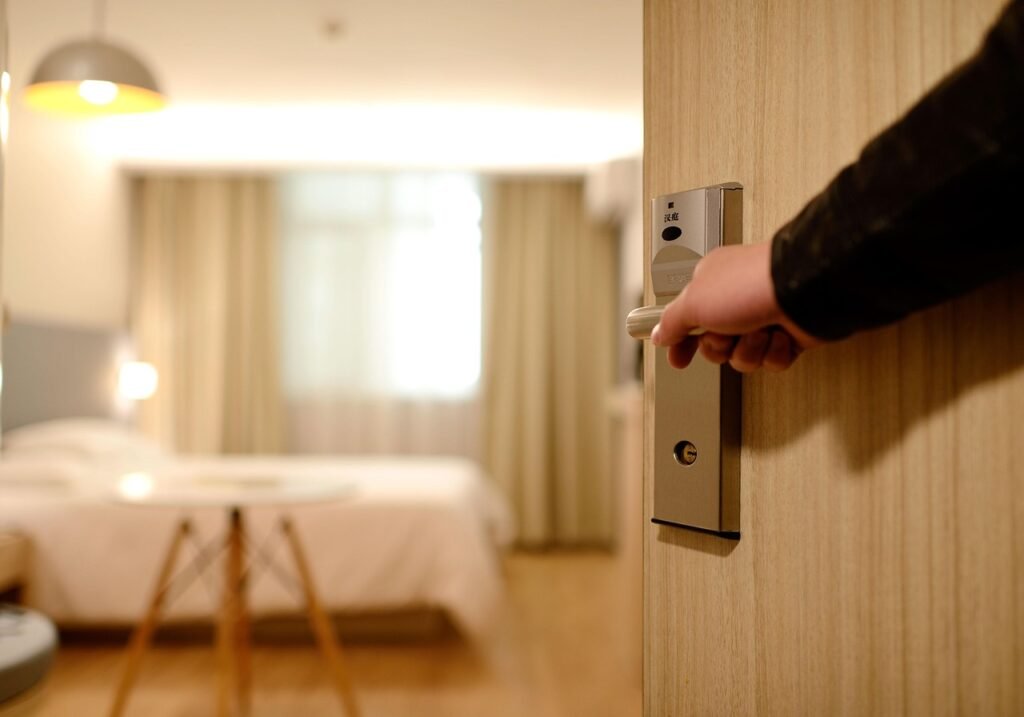
Part 3: Cultural Tips and Etiquette When Speaking Arabic in Hotels
Knowing words and phrases is important, but how you speak matters too. Arabic-speaking cultures value politeness and respect. When you use Arabic in a hotel, small details in your behavior make a big difference.
Use Polite Forms
Always say “please” and “thank you.” These are basic but powerful.
- Please – من فضلك (min faḍlik)
- Thank you – شكراً (shukran)
- You’re welcome – على الرحب والسعة (ʿalā al-raḥb wa al-saʿa)
Use polite greetings when you arrive. The most common is:
السلام عليكم (al-salāmu ʿalaykum) – peace be upon you.
The staff will often reply وعليكم السلام (wa ʿalaykum al-salām) – and peace be upon you too.
You can also say صباح الخير (ṣabāḥ al-khayr) – good morning, or مساء الخير (masāʾ al-khayr) – good evening. These greetings start the conversation on a good note.
Show Patience
In some countries, the process of checking in may take more time. Do not rush or raise your voice. If you do not understand something, ask politely to repeat.
- Can you speak slowly?
هل يمكنك التحدث ببطء؟ (hal yumkinuk al-taḥadduth bi-buṭʾ?) - I did not understand.
لم أفهم (lam afham)
These phrases show you are trying, not complaining. Staff are usually happy to slow down for learners.
Be Aware of Body Language
In many Arabic cultures, smiling and showing warmth are appreciated. Keep your tone friendly. Avoid pointing directly at people. If you hand something to the receptionist, use your right hand. This is considered more polite in many countries.
Respect Formality
Arabic has two ways to say “you.” The formal one is أنتم (antum) for plural or polite, and حضرتك (ḥaḍratuk) for respectful singular. When speaking to hotel staff, use polite forms if you can.
Example:
- Do you have available rooms? (formal)
هل لديكم غرف متاحة؟ (hal ladaykum ghuraf mutāḥa?)
Using لديكم (ladaykum) instead of عندك (ʿindak) sounds more formal.
Know Local Customs
In some countries, hotels may have rules based on local traditions. For example, in more conservative areas, unmarried couples may be asked for proof of marriage before sharing a room. Respect these rules and be prepared with documents if needed.
Alcohol may not be served in every hotel. If you need information, ask politely.
- Do you serve alcohol?
هل تقدمون مشروبات كحولية؟ (hal tuqaddimūn mashrūbāt kuḥūliyya?)
This shows respect even if the answer is no.
Show Appreciation
When staff help you, express thanks more than once. A simple شكراً (shukran) with a smile goes a long way. If you are happy with the service, you can say:
- Excellent service.
خدمة ممتازة (khidma mumtāza)
This motivates staff and builds positive connections.
Use Simple Arabic First
Start with short sentences, then add more words if you feel comfortable. Even if you can only say two or three words, try. Most people appreciate the effort.
Example:
غرفة واحدة، لو سمحت (ghurfa wāḥida, law samaḥt) – one room, please.
This is better than switching to English immediately.
Practice Cultural Listening
Sometimes staff will speak quickly or switch to another language. Listen for key words. Even if you miss details, catch numbers (like price or time). Repeat them to confirm.
Example:
- You hear “مئتان” (miʾatān) – two hundred. Repeat it back:
مئتان؟ (miʾatān?)
This shows you are paying attention and confirms you understood.
Build Confidence Step by Step
You do not need to speak perfect Arabic to make a good impression. Start with greetings, then add questions about the room. Over time, include more requests and small talk. Each stay becomes practice for the next.
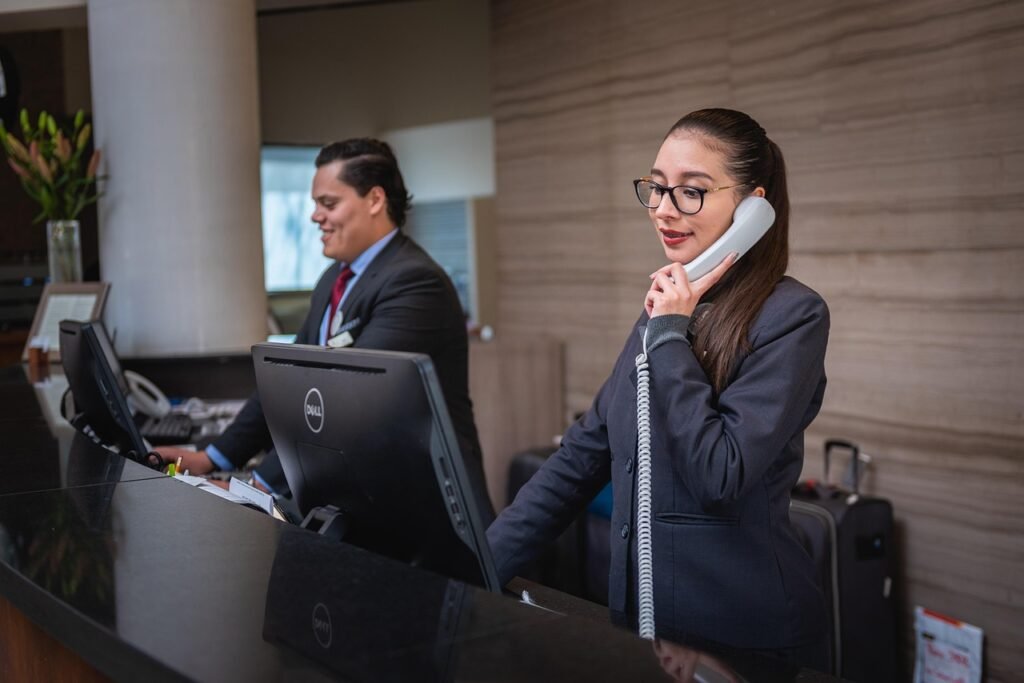
Part 4: Sample Hotel Conversation in Arabic
Seeing a full conversation helps you understand how the phrases and etiquette come together. Here is a practical example of booking a hotel room, checking in, and asking for common services.
At the Reception Desk – Booking and Check-In
Guest: السلام عليكم
(As-salāmu ʿalaykum) – Peace be upon you
Receptionist: وعليكم السلام
(Wa ʿalaykum as-salām) – And peace be upon you too
Guest: أود حجز غرفة لو سمحت
(Awaddū ḥajz ghurfa, law samaḥt) – I would like to book a room, please
Receptionist: هل لديكم حجز مسبق؟
(Hal ladaykum ḥajz musbaq?) – Do you have a previous reservation?
Guest: نعم، لقد حجزت عبر الإنترنت باسم رامداني
(Naʿam, laqad ḥajaztu ʿabr al-internet bism Ramdani) – Yes, I booked online under the name Ramdani
Receptionist: حسناً، لحظة من فضلك
(Ḥasanān, laḥẓa min faḍlik) – Okay, one moment please
Receptionist: لدينا غرفة مفردة متاحة لليلتين. هل يناسبك؟
(Ladayna ghurfa mufrada mutāḥa lil-laylatayn. Hal yunāsibuk?) – We have a single room available for two nights. Does that suit you?
Guest: نعم، شكراً. كم سعر الليلة؟
(Naʿam, shukran. Kam si‘r al-layla?) – Yes, thank you. How much is the price per night?
Receptionist: سعر الليلة 200 دولار، يشمل الفطور
(Si‘r al-layla 200 dollar, yashmal al-futūr) – The price is 200 dollars per night, including breakfast
Guest: ممتاز، سأدفع الآن
(Mumtāz, sa’adfaʿ al-ān) – Excellent, I will pay now
Receptionist: تفضل، هذا مفتاح غرفتك
(Tafaḍḍal, hādhā miftāḥ ghurfatik) – Here is your key
Guest: شكراً جزيلاً
(Shukran jazīlan) – Thank you very much
Asking About Services and Amenities
Guest: هل يوجد واي فاي في الغرفة؟
(Hal yūjad wāy fāy fī al-ghurfa?) – Is there Wi-Fi in the room?
Receptionist: نعم، كلمة المرور موجودة على بطاقة الغرفة
(Naʿam, kalimat al-murūr mawjudah ʿalā biṭāqat al-ghurfa) – Yes, the password is on your room card
Guest: جيد، وأين يقع المطعم؟
(Jayyid, wa ayna yaqʿu al-maṭʿam?) – Good, and where is the restaurant?
Receptionist: المطعم في الطابق الأول
(Al-maṭʿam fī al-ṭābiq al-awwal) – The restaurant is on the first floor
Guest: شكراً، هل يمكنني طلب منشفة إضافية؟
(Shukran, hal yumkinunī ṭalab minshafa iḍāfiyya?) – Thank you, can I request an extra towel?
Receptionist: بالطبع، سنرسلها إلى غرفتك الآن
(Biṭ-ṭabʿ, sanursiluha ilā ghurfatik al-ān) – Of course, we will send it to your room now
Handling a Small Problem
Guest: عذراً، الغرفة مزعجة قليلاً. هل يمكن تغييرها؟
(ʿUẓran, al-ghurfa muzʿija qalīlan. Hal yumkin taghyīruha?) – Excuse me, the room is a bit noisy. Can I change it?
Receptionist: نعم، لدينا غرفة أخرى في الطابق الأعلى. هل تريد الانتقال؟
(Naʿam, ladayna ghurfa ukhrā fī al-ṭābiq al-aʿlā. Hal turīd al-intiqāl?) – Yes, we have another room on the upper floor. Do you want to move?
Guest: نعم، لو سمحت
(Naʿam, law samaḥt) – Yes, please
Receptionist: تفضل، هذا مفتاح الغرفة الجديدة
(Tafaḍḍal, hādhā miftāḥ al-ghurfa al-jadīda) – Here is your new room key
Guest: شكراً جزيلاً على مساعدتك
(Shukran jazīlan ʿalā musāʿadatik) – Thank you very much for your help
Checkout
Guest: صباح الخير، أود تسجيل المغادرة
(Ṣabāḥ al-khayr, awaddū tasjīl al-mughādara) – Good morning, I would like to check out
Receptionist: هل استمتعت بإقامتك؟
(Hal istamtaʿt bi-iqāmatik?) – Did you enjoy your stay?
Guest: نعم، كانت ممتازة، شكراً
(Naʿam, kānat mumtāza, shukran) – Yes, it was excellent, thank you
Receptionist: شكراً لك، نتمنى لك رحلة سعيدة
(Shukran lak, natamannā laka riḥla saʿīda) – Thank you, we wish you a pleasant journey
Guest: شكراً، إلى اللقاء
(Shukran, ilā al-liqā’) – Thank you, goodbye
This conversation shows how greetings, requests, small problems, and checkout all flow naturally. Practicing it aloud prepares you for real situations. You can replace numbers, dates, or items to match your trip.
Practical Advice
Booking a hotel room in Arabic can feel challenging at first, but it is also one of the most practical ways to improve your language skills. You do not need perfect grammar or a large vocabulary to communicate effectively. By learning key words, polite phrases, and cultural etiquette, you can handle most situations smoothly.
Start small. Focus on greetings, asking for a room, and confirming the price. Then add requests for services like Wi-Fi, extra towels, or breakfast. Over time, you can handle more complex conversations, such as asking for directions, solving problems, or making special requests. Each interaction is an opportunity to practice and build confidence.
Always remember the cultural side. Politeness matters more than perfect pronunciation. Smile, use “please” and “thank you,” and listen carefully. Showing effort and respect makes a positive impression and encourages hotel staff to help you. Even short sentences or single words are enough if spoken politely.
Practice before your trip. Role-play with a friend, record yourself, or simulate hotel conversations at home. Write down the phrases you will use and repeat them until they feel natural. This preparation makes a real conversation less stressful and more effective.
Our academy, Ramdani Arabic Academy, focuses on practical learning for real-life situations. Lessons, courses, and articles are designed to help you use Arabic confidently in everyday life, not just in the classroom. From simple vocabulary to complex conversations, we guide learners step by step. Using Arabic while traveling is a perfect way to apply what you learn and see tangible progress.
Remember, mistakes are part of learning. Do not worry about saying something wrong. Hotel staff are usually patient and helpful, and every conversation is a learning opportunity. With each interaction, you will understand more, speak more naturally, and feel more confident.
Finally, make it a habit. Try to use Arabic in small ways whenever you can—at hotels, restaurants, markets, or when asking for directions. Each attempt strengthens your skills and builds confidence. Over time, speaking Arabic will become easier, and you will enjoy richer experiences during your travels.
As the founder of Ramdani Arabic Academy, I encourage every learner to step out of the comfort zone and practice regularly. Arabic is a language with depth and variety, and using it in real situations is one of the fastest ways to improve. Every question, request, or conversation you have is progress.
By combining vocabulary, phrases, etiquette, and cultural awareness, you can book a hotel room confidently and enjoy your stay. This article gives you a step-by-step approach, practical examples, and real-life scenarios to make your experience smooth and rewarding.
Whether you are traveling for study, work, or vacation, using Arabic will enrich your journey and give you more meaningful interactions with locals. Practice, patience, and persistence are the keys to success. Start today, speak with confidence, and let your Arabic skills open doors wherever you go.

